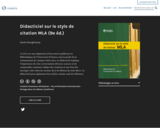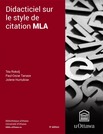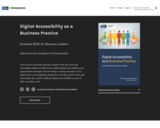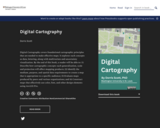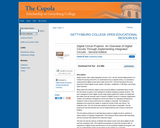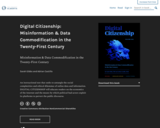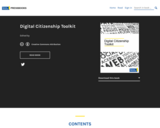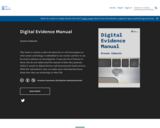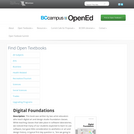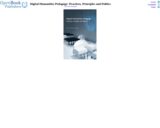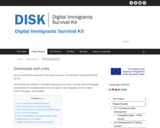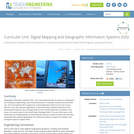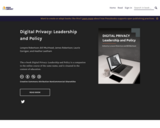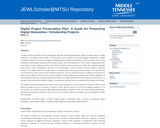Short Description:
The Digital Methods for Disability Studies course introduces students to a range of technologies and teaches them to think critically with and through media objects, practices, and processes. Through texts, videos, podcasts, games, and interactive activities, students develop their critical thinking, close-reading, textual analysis, platform analysis, visual analysis, and critical game design skills. This course offers students an opportunity to both interrogate the digital realm as a site of inequality and to harness digital tools and methods in addressing complex social challenges.
Long Description:
The Digital Methods for Disability Studies Pressbook is a course that introduces students to a range of technologies and teaches them to think critically with and through media objects, practices, and processes. Students ask critical questions about digital methods and explore how these methods work with other forms of knowledge production. Through texts, videos, podcasts, games, and interactive activities, students develop their critical thinking, close-reading, textual analysis, platform analysis, visual analysis, and critical game design skills. This Pressbook offers students an opportunity to both interrogate the digital realm as a site of inequality and to harness digital tools and methods in addressing complex social challenges. This digital-by-design course responds directly to the expressed needs of students for content that will prepare them to navigate digitally-mediated community, work, learning, cultural, and intimate spaces.
The course is comprised of ten modules. Each module introduces students to theoretical and practical conversations at the intersection of critical disability studies and digital methods. It offers both open-access required and suggested additional readings as well as multimedia resources by key figures in these intersecting fields. Through a series of ‘spotlights,’ students meet emerging and established Canadian disabled and Deaf makers. Innovative exercises integrated throughout each module allow students to engage with the materials independently in asynchronous online courses. In addition, instructor notes and sample documents in the Pressbook back matter point to how the course can be run collaboratively as a catalyst for critical dialogue.
Throughout this Pressbook course students will: Become skilled with multiple digital storytelling platforms, such as social media, podcasts, and Twine, in knowledge communication and dissemination Gain hands-on experience with meeting AODA standards and making the digital sphere accessible. Understand the fundamentals of crip technoscience, cripping digital media, and critical game design and how to apply them in cultural and social environments. Develop a nuanced understanding of accessibility and accommodation law, policy, and practice guidelines related to media design and production. Practice using this knowledge with digital media platforms and technologies. Critically reflect on how technological innovation proceeds from and is related to social, cultural, and embodied difference. Witness first-hand the impact of the digital divide on disabled people. Analyse sources of inequitable access to digital resources due to economic, physical, geographic, and infrastructure factors. Identify the affordances and constraints of media platforms and technologies with attention to access and disability justice. Reflect critically on the labour and ethics of digital making.
Word Count: 60302
(Note: This resource's metadata has been created automatically by reformatting and/or combining the information that the author initially provided as part of a bulk import process.)
